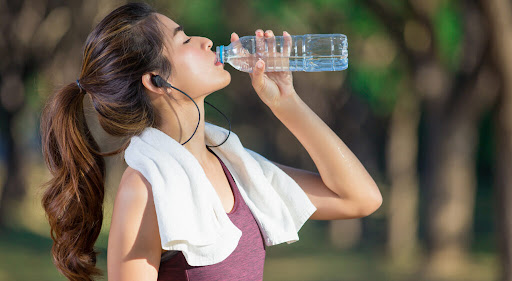In the realm of physical fitness, one element often overlooked but crucial for optimal performance is hydration. Whether you’re hitting the gym, going for a run, or engaging in any form of exercise, proper hydration is essential for sustaining energy levels, preventing fatigue, and supporting overall health. In this article, we’ll explore the significance of staying hydrated during physical activity and provide valuable insights to help you maintain optimal fluid balance for peak performance.
Introduction: Quenching Your Thirst for Success
As you embark on your fitness journey, remember that water is your best friend. Hydration is not just about drinking enough fluids; it’s about fueling your body with the essential moisture it needs to function efficiently. From regulating body temperature to lubricating joints and delivering nutrients to cells, water plays a multitude of roles in the body, especially during exercise when fluid loss is accelerated.
The Science Behind Hydration
When you engage in physical activity, your body’s temperature rises, leading to increased sweating as a mechanism to cool down. As sweat evaporates from the skin, it carries heat away from the body, but it also results in fluid loss. Even mild dehydration can have detrimental effects on performance, including reduced endurance, impaired cognitive function, and increased risk of heat-related illnesses.
Optimal Hydration Strategies
- Pre-Workout Hydration: Start hydrating well before your workout session begins. Aim to drink about 16-20 ounces of water 2-3 hours before exercise and an additional 8-10 ounces 10-20 minutes before starting.
- During Exercise Hydration: Stay ahead of dehydration by sipping water regularly throughout your workout. The American Council on Exercise recommends consuming 7-10 ounces of fluid every 10-20 minutes during exercise, adjusting intake based on sweat rate and environmental conditions.
- Post-Workout Hydration: Replenish lost fluids post-exercise by drinking water or a sports drink containing electrolytes. Aim to consume 16-24 ounces of fluid for every pound of body weight lost during exercise.
- Monitor Urine Color: Use urine color as a simple indicator of hydration status. Pale yellow urine typically indicates adequate hydration, while dark yellow or amber-colored urine may signal dehydration.
The Benefits of Proper Hydration
- Improved Performance: Proper hydration supports optimal physical performance by maintaining blood volume, nutrient delivery to muscles, and thermoregulation during exercise.
- Enhanced Recovery: Adequate fluid intake post-exercise helps replenish glycogen stores, repair muscle tissue, and facilitate the removal of metabolic waste products, promoting faster recovery.
- Reduced Risk of Injury: Proper hydration supports joint lubrication and elasticity, reducing the risk of cramps, strains, and other exercise-related injuries.
- Cognitive Function: Hydration plays a vital role in cognitive function, with studies showing that even mild dehydration can impair mood, concentration, and decision-making abilities.
FAQs (Frequently Asked Questions)
Q1: How much water should I drink during exercise? A1: The amount of water you need during exercise depends on factors such as duration, intensity, and environmental conditions. Aim to drink 7-10 ounces of fluid every 10-20 minutes during exercise.
Q2: Are sports drinks necessary for hydration during exercise? A2: Sports drinks containing electrolytes can be beneficial for prolonged or intense exercise lasting longer than 60-90 minutes, as they help replace electrolytes lost through sweat. For shorter workouts, water is usually sufficient.
Q3: Can I drink too much water during exercise? A3: While rare, drinking excessive amounts of water without replacing electrolytes can lead to a condition called hyponatremia, characterized by dangerously low sodium levels in the blood. It’s essential to maintain electrolyte balance during prolonged exercise.
Q4: How can I stay hydrated if I don’t like drinking plain water? A4: Experiment with flavored water, herbal teas, or electrolyte-enhanced beverages to make hydration more enjoyable. Consuming water-rich foods like fruits and vegetables can also contribute to your fluid intake.
Q5: Does caffeine dehydrate you during exercise? A5: While caffeine has diuretic properties, research suggests that moderate caffeine consumption (up to 400 mg per day) does not significantly impact hydration status, especially in habitual caffeine consumers.

